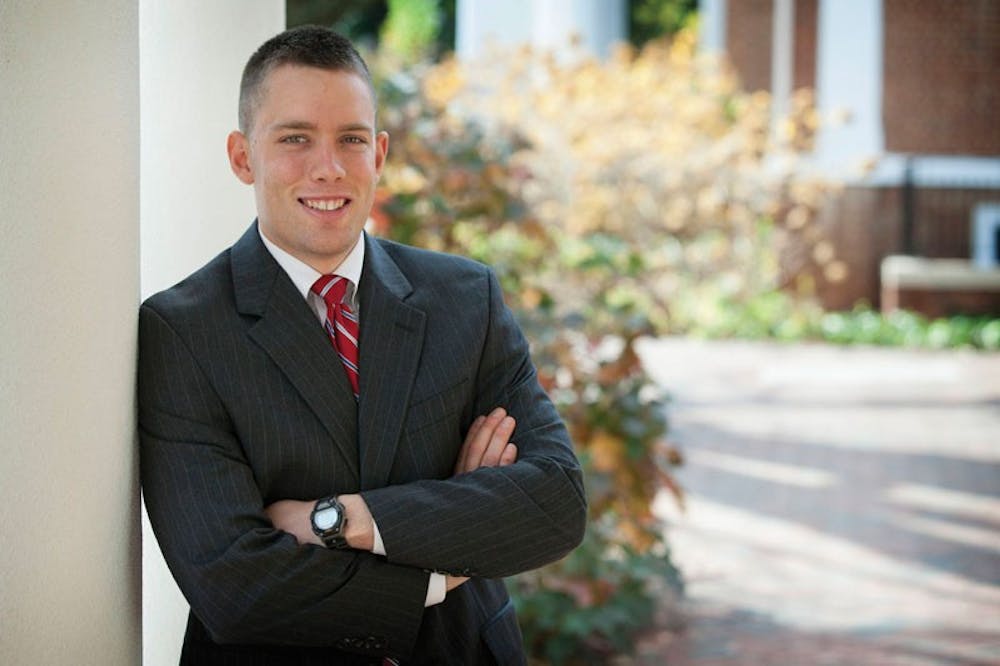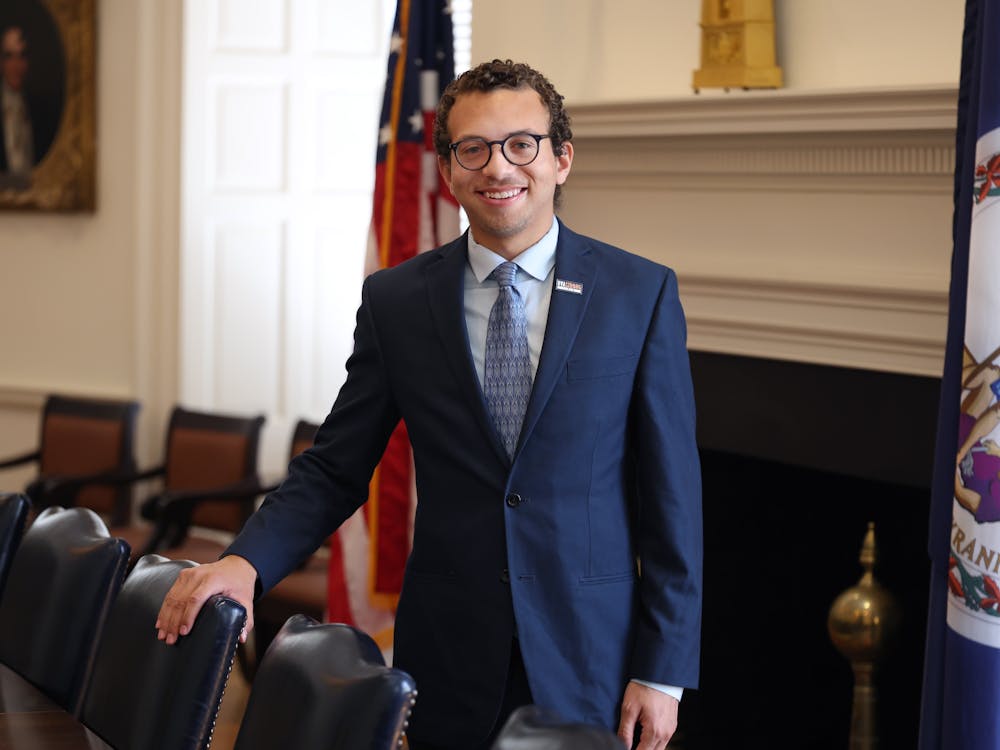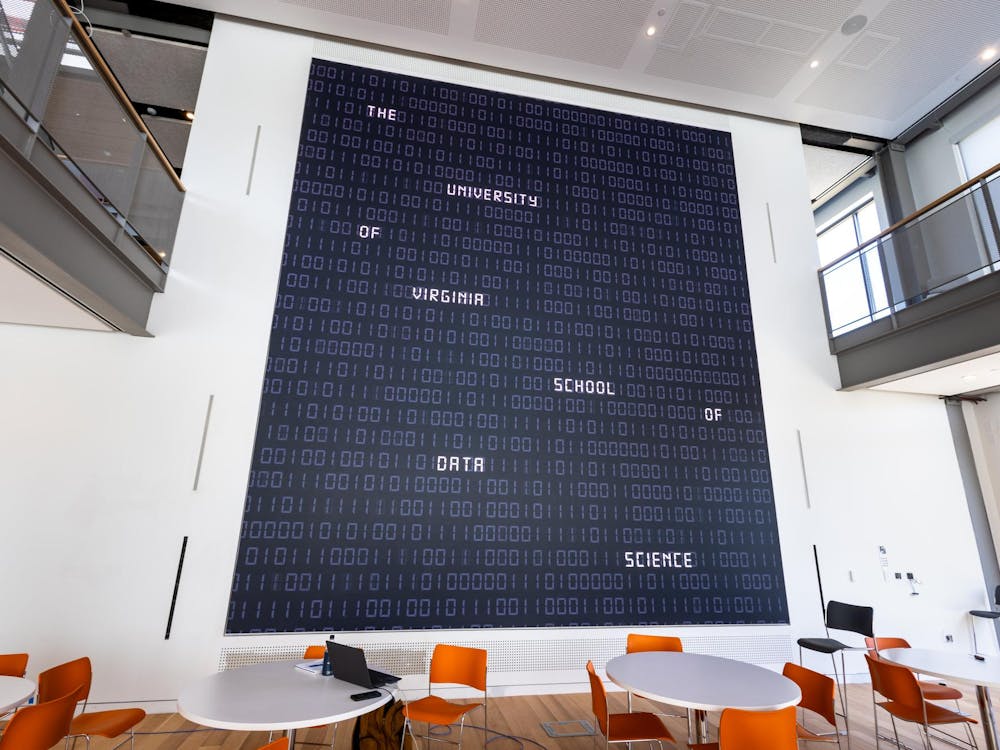Athens, Tenn. is a long way from Charlottesville, and an even longer way from Oxford University. But for fourth-year College student Joe Riley, who was named a Rhodes Scholar Saturday, Tennessee is where it all began.
Riley has learned to balance a host of contradictions that have shaped who he is as a student and a soldier. Born in a small town with almost no Asian residents, he would become fluent in Chinese and develop his undergraduate expertise on U.S.-China relations. A proponent of avoiding international conflict, Riley would also choose to enter the military, ultimately ranking among the top 10 Army ROTC cadets in the nation.
The best way to describe Riley may be through one of his mentors, Economics Prof. Ken Elzinga. It was Elzinga who held the engagement ring when Riley proposed to his fiancée on Beta Bridge — three years after the professor watched Riley save a woman’s life.
“We were out to lunch to discuss the possibility of Joe studying Chinese, when a woman began choking to death at a nearby table,” Elzinga said. “I asked Joe if he’d ever performed the Heimlich maneuver before, and he said that he hadn’t but he’d give it a try. I truly believe Joe saved that woman’s life. When he came to me two weeks later saying that he’d had to give mouth-to-mouth to an unconscious TA in lecture, I had to assure him that this wasn’t typical of University life.”
Riley’s efforts were rewarded Saturday when he earned the prestigious Rhodes Scholarship. Created in 1902 based on the will of Cecil Rhodes, the scholarship is awarded based on high academic achievement, integrity, a spirit of unselfishness, respect for others, potential leadership and physical vigor.
Riley is currently a politics honors and Mandarin Chinese major. As a Rhodes Scholar, he plans to earn a masters and doctorate in international relations before entering the army as an infantry officer.
Though his commitment to both the military and avoiding conflict may seem contradictory, Riley said it is anything but.
“There is a difference between being willing to defend and being anxious to fight,” Riley said. “I believe the best approach for those in uniform to truly protect the country is to try and work out our differences before things come to conflict. Understanding the cost of conflict helps.”
With his spot in the military on hold, Riley looks forward to meeting international scholars with whom he will study U.S.-China relations from an outside perspective.
“I have the unique opportunity to study the relationship from a more objective view,” Riley said. “The Oxford program is very good at looking at cultural factors [and the like] that impact foreign policy in practice. And aside from the monetary benefit, the Rhodes scholarship gives you a tremendous international network of scholars, especially in the military.”
Riley is no stranger to the field of international relations. He is currently co-authoring a book with Politics Prof. Dale Copeland on the future of Sino-American relations. In the past, he received a top-secret security clearance to pursue field research in China, where he first travelled in summer 2010 for a language immersion program.
More than a simple list of accolades, Riley has proved exceptional in the University community in ways ranging beyond his research. He has served as an undergraduate lecturer, structuring the undergraduate course “Ethics in Modern Warfare.” During his time at the University, Riley has served as an advisor for the Honor Committee and a member of the Class Council. He founded Operation Flag the Lawn to raise money for the Wounded Warrior Fund and help bridge the civilian-military divide. Riley is a member of the Phi Delta Theta fraternity, an Alternative Spring Break site leader and the founding member of the school’s chapter of the Alexander Hamilton Society, which promotes discussions on college campuses about foreign policy.
Elzinga said the most unusual thing about Riley, who admits to a sleep regimen of about three to four hours a night, is his unceasing drive — both day and night.
“If you think about it, it’s really hard to compete with a person who’s really smart and doesn’t need to sleep,” Elzinga said.







